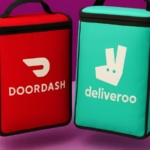Summary:
Inflation is rising, the economy is slowing, and tariffs are shaking things up. If you’re not actively budgeting, you could be losing more money than you think. This guide walks you through simple but powerful steps to build a budget that works — even if you’re living paycheck to paycheck or working gigs.
What’s Happening?
President Trump’s recent tariffs are expected to raise prices on goods, causing inflation to rise and the economy to cool down. Investors are moving into safer assets, and households should do the same with their spending habits.
The reality? Many people overestimate their income and underestimate their expenses. That leads to financial stress, overdrafts, and missed opportunities to save or invest.
Why It Matters:
- Inflation eats into your buying power.
- Overspending is easy when you don’t track.
- Budgeting gives you control—even in chaos.
MoniAction Plan: How to Budget in 5 Easy Steps
1. Know Your Real Income
Look at your take-home pay, not your salary. If you freelance or do gigs, average your income over the past 3–6 months. Add up what actually lands in your account.
2. Track Every Expense for 30 Days
Write down or log everything—from rent to snacks. You’ll be surprised where your money leaks.
3. Budget by Category
Start with fixed costs (rent, utilities, transport). Then add variable costs (food, fun, shopping). Finally, assign money to savings and debt.
4. Prepare for Taxes (If You’re Self-Employed)
Set aside 25%–30% of your income for taxes. “No one is withholding for you,” says tax expert Tim Rupert.
5. Build an Emergency Fund
Start small—₦10,000, $100, or £50. Over time, aim for 3–6 months’ worth of essential expenses in a high-yield savings account.
MoniChecklist:
- Know your monthly take-home income
- Track spending for 30 days
- Create a basic spending plan
- Save for taxes (if needed)
- Start or grow your emergency fund
Final Word:
You don’t need a finance degree to stay on top of your money. With inflation and uncertainty rising, a basic budget is your most powerful money tool. Start small, stay consistent, and adjust as life changes.








